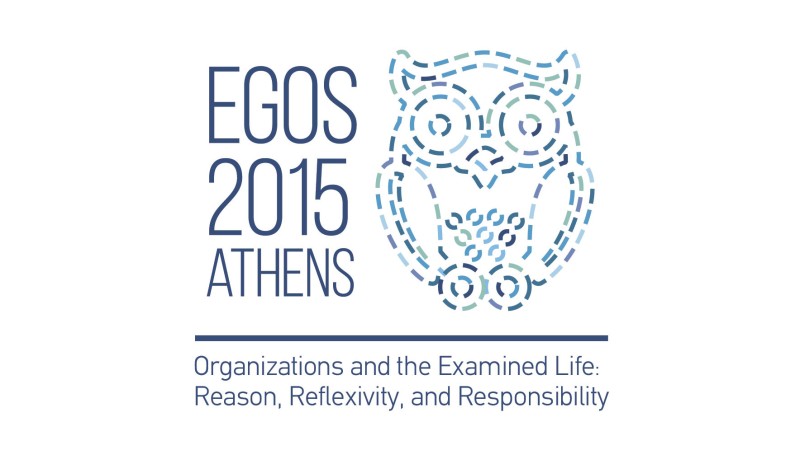Sub-theme 46: Open Organizations for an Open Society? Practicing Openness in Innovation, Strategy and Beyond
Call for Papers
Over the past decade, 'openness' has become one of the most imperative virtues of modern organizations. Originating
in the field of open source software development (Raymond, 2001), we can observe increasing demands for all kinds of openness
in fields such as open innovation (Chesbrough, 2006), open strategy (Whittington et al., 2011), open science (David, 1998)
or open government (Janssen et al., 2012).
All these different 'open paradigms' share – and fuel – hopes of combining
greater efficiency with more inclusive and transparent forms of organizing. In the context of open innovation, for instance,
the literature anticipates technological (e.g. reduced production costs) and marketing (e.g. positive effects on reputation)
benefits (Henkel et al., 2014). Open strategy, in turn, promises access to dispersed knowledge, with some even speaking of
"democratizing strategy" (Stieger et al., 2013). In the realm of open government and open science, expected benefits are often
connected with access to all kinds of open data (e.g. Molloy, 2011).
However, studies of openness in organizations
also point to a number of potential weaknesses and pitfalls such as loss of knowledge and intellectual property (e.g. Henkel
2006; von Hippel & von Krogh, 2003). So, on the level of organizational practices, we need more research that addresses
the challenges implied by greater openness in terms of organizational structures, boundaries and culture. And on a broader
level, the boom of openness, as recently pointed out by Nathaniel Tkacz (2012), is curious within a supposedly already-open
society (Popper, 1971). Why is there such a demand for openness and what does this tell us about society at large?
The growing popularity and diversity of openness as a concept deserve more comprehensive theories of openness, looking
at both limits and potentials of organizational openness. This sub-theme, therefore, seeks to advance our understanding of
openness in different fields. Respective questions include, but are not limited to:
Openness as a paradigm:
- What are the different conceptions of 'openness' we find in both theory and praxis?
- How did ‘openness’ emerge as a guiding organizing principle? Historically, what were the predecessors and alternatives to the concept?
- Does openness require or lead to new forms of closure or even exclusion?
- What are different dimensions of openness and why do they matter?
- What types of technologies change or enable different types of openness?
- How does 'openness' differ in fields such as open innovation, open strategy or open government?
Organizational
openness:
- How is openness grounded in sociomaterial practices of everyday organizing?
- How does organizational change unfold under the banner of 'openness'?
- What are benefits, what are downsides, what are potentially unintended consequences of open approaches to innovation, strategy or science?
- How is 'openness' perceived on different organizational levels? Who profits from, who looses with greater openness?
- Can we identify generically 'open practices' across different fields? Do 'open practices' include a typical working style?
- How do organizations cope with different types of technologies of openness?
- How do regulatory institutions such as government mandates or subsidies foster or prohibit openness on the organizational level?
- How does governance work in ecosystems of openness comprising of firms, civil-society and government actors?
- How does organizational openness contribute to an 'open society' in general?
References
- Chesbrough, H.W. (2006): "Open innovation: A new paradigm for understanding industrial innovation." In: H.W. Chesbrough, W. Vanhaverbeke & J. West (eds.): Open Innovation: Researching a New Paradigm. Oxford: Oxford University Press, pp. 1–12.
- David, P.A. (1998): "Common agency contracting and the emergence of 'open science' institutions." American Economic Review, 88 (2), 15–21.
- Janssen, M., Charalabidis, Y., & Zuiderwijk, A. (2012): "Benefits, adoption barriers and myths of open data and open government." Information Systems Management, 29 (4), 258–268.
- Henkel, J. (2006): "Selective revealing in open innovation processes: The case of embedded Linux." Research Policy, 35 (7), 953–969.
- Henkel, J., Schöberl, S., & Alexy, O. (2014): "The emergence of openness: How and why firms adopt selective revealing in open innovation." Research Policy, 43 (5), 879–890.
- Molloy, J.C. (2011): "The open knowledge foundation: Open data means better science." PLoS Biology, 9 (12), e1001195, doi:10.1371/journal.pbio.1001195.
- Popper, K.R. (1971, 5th edition): Open Societies and Its Enemies. Vol 2: Hegel and Marx. Princeton, NJ: Princeton University Press.
- Raymond, E.S. (2001): "The cathedral and the bazaar." In: E.S. Raymond (ed.): The Cathedral and the Bazaar: Musings on Linux and Open Source by an Accidental Revolutionary. Sebastopol: O'Reilly, pp. 19–63.
- Stieger, D., Matzler, K., Chatterjee, S., & Ladstaetter-Fussenegger, F. (2012): "Democratizing strategy: how crowdsourcing can be used for strategy dialogues." California Management Review, 54 (4),44–69.
- Tkacz, N. (2013): "From open source to open government: A critique of open politics." Ephemera, 12 (4), 386–405.
- von Hippel, E., & von Krogh, G. (2003): "Open source software and the 'private-collective' innovation model: issues for Organization Science." Organization Science, 14 (2), 209–233.
- Whittington, R., Cailluet, L., & Yakis-Douglas, B. (2011): "Opening strategy: evolution of a precarious profession." British Journal of Management, 22 (3), 531–544.


